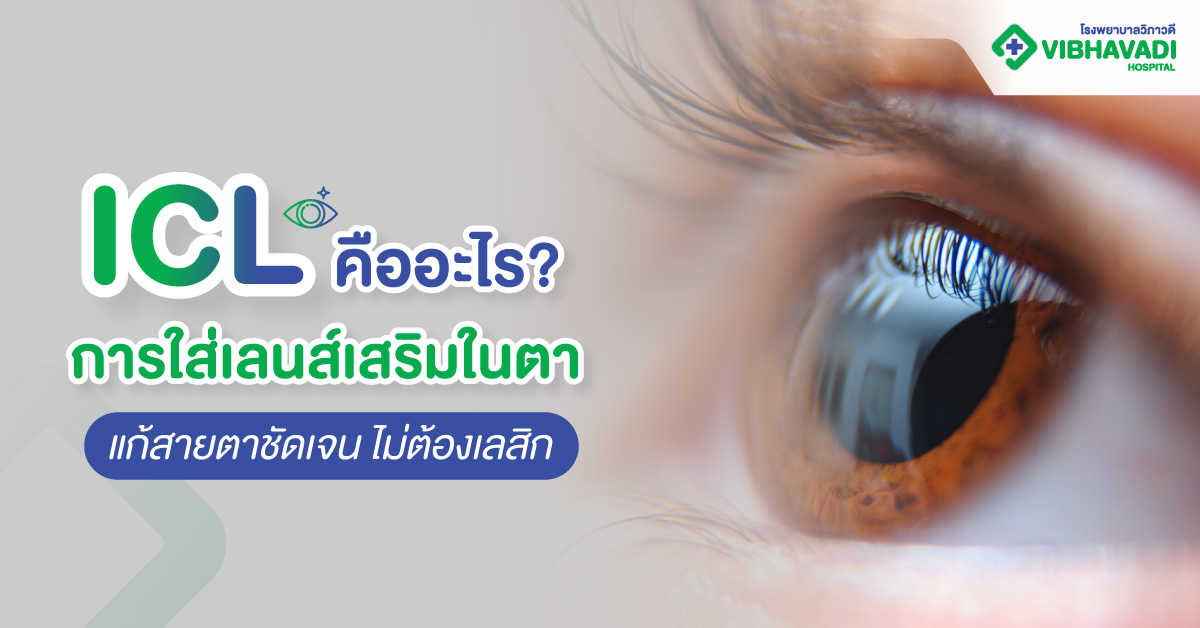ICL (Implantable collamer lens)

ICL: What Is It? Implantable Contact Lens for Clear Vision Without LASIK
Key Takeaway
- ICL is a foldable lens implanted inside the eye to correct nearsightedness, farsightedness, or astigmatism—without corneal surgery.
- Unlike LASIK, which reshapes the cornea with a laser, ICL preserves the cornea by adding a corrective lens inside the eye.
- ICL is suitable for people with high refractive errors, thin corneas, or those not eligible for LASIK.
What Is ICL? Understanding Implantable Collamer Lenses
For individuals struggling with vision issues such as myopia (nearsightedness), hyperopia (farsightedness), or astigmatism, LASIK is often the first procedure that comes to mind. However, not everyone is a candidate for LASIK. For those who are hesitant about corneal surgery or have been told they are not suitable, ICL technology provides a promising alternative.
ICL (Implantable Collamer Lens) is a specialized lens designed to correct refractive errors by working in harmony with the eye’s natural lens. Instead of reshaping the cornea, a surgeon places the ICL behind the iris (colored part of the eye) and in front of the eye’s natural crystalline lens. This positioning allows the ICL to bend light accurately onto the retina, creating sharp, clear vision.
What Are ICL Lenses Made Of?
ICL lenses are crafted from Collamer, a unique material that combines collagen (a natural protein) with a copolymer. This composition ensures the lens is:
- Biocompatible – integrates seamlessly with the eye’s natural environment.
- Clear and flexible – allowing easy folding and insertion during surgery.
- Durable and permanent – once implanted, the lens can last a lifetime.
- Protective – includes UV protection to shield the retina from harmful rays.
The Collamer material also minimizes glare, halos, and light scatter, which are common complaints after some refractive surgeries.
ICL vs. LASIK: Key Differences
While both ICL and LASIK aim to correct vision, their approaches differ significantly:
- LASIK: Reshapes the cornea using a laser. Permanent, but not suitable for everyone. Thin corneas, irregular corneas, or severe dry eyes can rule out LASIK.
- ICL: Adds a corrective lens inside the eye without altering corneal structure. The procedure is reversible, meaning the lens can be removed or replaced if needed in the future.
ICL can correct up to -18.00 diopters of myopia and up to -6.00 diopters of astigmatism, making it especially valuable for patients with very high prescriptions who are not eligible for LASIK.
Who Is a Candidate for ICL?
ICL is particularly suited for individuals with certain eye conditions or lifestyle needs. You may be a good candidate if you:
- Have severe nearsightedness or high astigmatism (greater than -10.00 D).
- Have been told LASIK, PRK, or SMILE is not an option due to thin corneas.
- Are between 21 and 45 years old with stable vision for at least one year.
- Have sufficient anterior chamber depth to accommodate the lens.
- Have healthy eyes with no history of glaucoma, retinal disease, or severe eye infections.
- Desire a reversible procedure rather than permanent corneal reshaping.
Preparing for ICL Surgery
Proper preparation ensures a smooth and safe surgical experience. Patients should follow these steps:
- Comprehensive eye exam: Your ophthalmologist will measure refractive error, corneal thickness, anterior chamber depth, and overall eye health.
- Medical disclosure: Inform your doctor of any chronic illnesses, allergies, or medications.
- Remove contact lenses: Stop wearing contact lenses 24 hours before surgery.
- Avoid cosmetics and fragrances: No makeup, lotions, perfumes, or hairsprays on the day of surgery.
- Fasting: Do not eat or drink anything for at least six hours prior to surgery.
- Arrange transportation: You cannot drive yourself home after the procedure.
- Clean preparation: Wash hair, trim nails, and wear comfortable clothing.
- Stay healthy: Report any redness, infections, or eye discomfort before the procedure.
The ICL Procedure: Step by Step
The surgery is quick, typically completed in under 30 minutes per eye, and is performed under local anesthesia.
- Numbing the eye – Eye drops or a small injection provide complete comfort.
- Creating the incision – A micro-incision of 3 mm is made at the edge of the cornea.
- Inserting the ICL – The foldable lens is gently placed into the eye using a special injector.
- Positioning – The lens unfolds behind the iris and rests in front of the natural lens.
- Final adjustments – The surgeon ensures proper alignment for optimal vision.
No sutures are required, and the incision heals naturally. Most patients notice clearer vision within hours of surgery.
Benefits of ICL
ICL offers several unique advantages that make it appealing to patients worldwide:
- Biocompatibility – The Collamer lens material is well-tolerated by the eye.
- Preservation of the cornea – No reshaping or removal of corneal tissue.
- Excellent visual quality – Crisp vision in both daylight and low-light conditions.
- Minimal side effects – Reduced glare and halos compared to other surgeries.
- UV protection – Helps reduce long-term risks such as cataracts or macular degeneration.
- No dry eyes – Because corneal nerves remain untouched, ICL does not cause or worsen dryness.
- Quick recovery – Most patients resume normal activities within 1–3 days.
- Reversible – The lens can be replaced or removed if necessary.
- High prescription correction – Effective for people with severe myopia or astigmatism.
Recovery After ICL Surgery
Healing after ICL is typically smooth and fast:
- Vision usually improves within 24–48 hours.
- Mild irritation or light sensitivity may occur in the first few days.
- Most people return to normal work or school in 2–3 days.
- Avoid rubbing your eyes, swimming, or strenuous exercise for about 2 weeks.
- Follow-up visits with your ophthalmologist are crucial for monitoring healing.
Summary
ICL (Implantable Collamer Lens) is an advanced solution for people seeking freedom from glasses or contact lenses—without altering the cornea. Made from biocompatible material, ICL provides sharp vision, protects the eyes from UV damage, and avoids common issues like dry eye. It is especially beneficial for individuals with high prescriptions, thin corneas, or those unsuitable for LASIK.
With rapid recovery, reversible results, and excellent safety, ICL has become one of the most reliable and versatile vision correction options available today.
Frequently Asked Questions About ICL
1. How long does ICL last?
ICL lenses are designed to last a lifetime. They rarely need replacement unless vision changes significantly or a medical issue arises.
2. How many days of rest are needed after ICL?
Most patients resume daily activities within 1–3 days. Vision often becomes clear within 24 hours.
3. Can I sleep on my side after ICL surgery?
It is recommended to avoid sleeping on your side for about 2–3 weeks post-surgery to protect the healing eye.
4. Can ICL be removed in the future?
Yes. One of the advantages of ICL is that it is removable and replaceable if your prescription changes or new technology becomes available.
Testimonials
Nearsightedness -1,000, corneas too thin for LASIK…
But in the end… she regained clear vision with ICL 👁️✨
By Dr. Duangporn Arayapong
Cornea Specialist, Vibhavadi Hospital
Thank you, Khun Sisiri Rattanawaraha, for trusting us to care for your eyes.
.png)
📍Receive treatment at Vibhavadi LASIK SUPER Center
3rd Floor, Building 4, Vibhavadi Hospital
📞 For more information or to make an appointment:
081-988-6784 | 063-465-2020
📲 Line: @vibha-lasik
📖 Read reviews on Facebook:
https://www.facebook.com/lasikadvancedcenter/
.jpg)
Proud to take care of you




